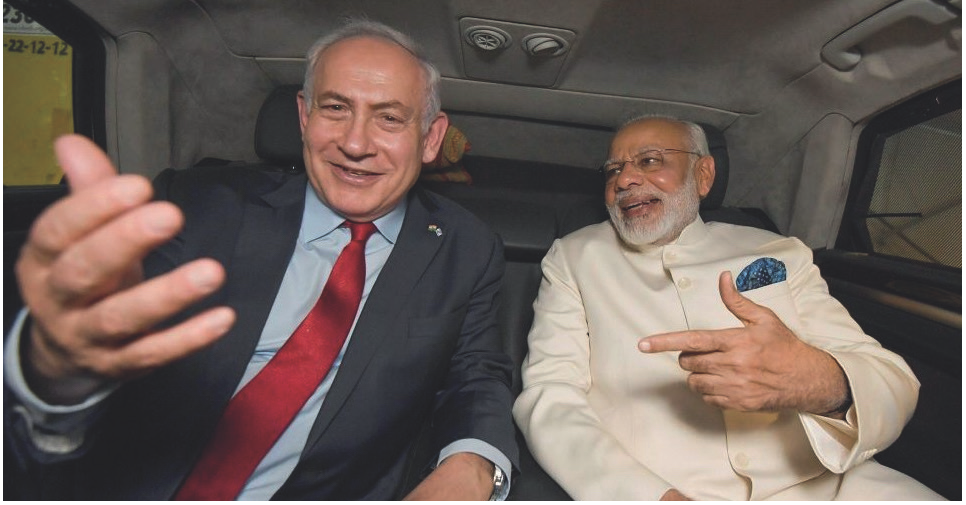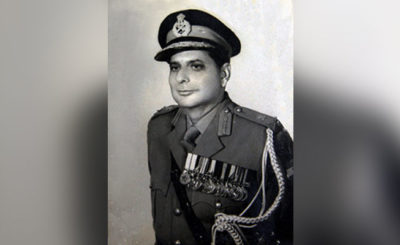In the backdrop of India’s vote at the UN against the US move to recognise Jerusalem as Israel’s capital, Prime Minister of Israel Netanyahu is visiting India. He will be the only second by any Israeli Prime Minister since the formalisation of diplomatic relations in 1992. In 2003, Ariel Sharon’s trip was the first one. Though trade, agriculture and science and technology have been the major areas of cooperation for both the countries, civilisational linkages between Hindus and Jews and common concerns on counter-terrorism are the real drivers that is underpinning of the bilateral ties. The real threat to this has been the conventional policy linking of bilateral relations with the Israel-Palestine Conflict by previous Indian Governments. While the official diplomatic ties completing 25 years, how totake the de-hyphenation process forward in bilateral relations is the key question that we need to address.
Unloading the ‘Secular’ Baggage
After voting against the Partitioning of Palestine plan of 1947 and admission of Israel to the United
Nations in 1949, India officially recognised the State of Israel on September 17, 1950. Following India’s recognition of Israel, Indian Prime Minister Jawaharlal Nehru stated, “We would have [recognised Israel] long ago, because Israel is a fact. We refrained because of our desire not to offend the sentiments of our friends in the Arab countries.” Of course, the oil-dependent on the Arab World, India was very cautious while dealing with Israel, though it was believed as ‘a fact’.
More importantly, it was the fraudulent execution of ‘secularism’ that thwarted all chances of strengthening the bilateral ties with Israel on civilisational terms. Though, Jews always recognised India as the true friend and the only country where they did not have to face the persecution, the Congress, Communists, Socialists, Liberal intellectuals – the ‘secularists’ always gave the prime importance to the ‘Palestine Cause’, linking it to the Muslims of India.
The honourable exception was Hindu- Nationalists who always admired Israel’s struggle for nationhood and believed that India should have a strong ties with the Jew country.
The deceptive consideration of the universal brotherhood of Islam led to partition of India. The ‘Muslim sentiments’ was the key factor in taking a stand on many key domestic and global issues and support to the Caliphat movement was a starting point for it. After independence, the same deception guided not only the domestic political considerations but also our foreign policy choices and the ‘informality’ in bilateral relations with Israel is the classic example of that. This policy continued even during the difficult times of 1962 War with China and 1971 War with Pakistan, when Israel was ready to support India militarily in exchange of full diplomatic ties. Only in 1992, under the leadership of P.V. Narasimha Rao, India established a full- fledged diplomatic relationship with Israel by opening an embassy in Tel Aviv. Fortunately, the process was taken forward in the post Cold-War environment by all the successive governments. Of course, the ability of defence- strong nation exhibited its ability to supply military technology and equipments to India during the times of duress at the time of Kargil conflict. The last thaw in this process was Prime Minister Modi visiting Israel in July 2017, without visiting Palestine.
Rekindling the Natural Alliance
Primarily, there are two reasons that should be foundation of India-Israel relations – civilisational ethos and commitment to democracy. These two should be positive imperators of the bilateral relations and not on the negative presumption of alliance against the Muslim world.
Common experience derived from deep history and culture’ is an important factor not appreciated by many while assessing this relationship. The Indian and Jewish civilizations are much older than many other existing religious with a strong tradition of inter-religious dialogue and acceptance. Words of Sanskrit origin appeared in the Hebrew Bible 3,000 years ago, while Jewish authors of Roman times, rabbis of the Talmud, and Jewish traders and philosophers in the Middle Ages spoke of India. Both Hinduism and Judaism do not practice religious conversion as a method of propagation and still believe that ‘the Supreme Being’ is one and omnipresent. The strong connect with the nature and belief in knowledge society is also common to both the civilisations. The common experiences of historical persecution and present day terrorism are important add on factors to this.
The positive experiences of Jewish people in India and contribution of Indian soldiers in Battle of Haifa (1918) that proved to be critical in creation of Israel in 1948 can come handy in furthering the cause.
Both the countries attained their independent status on the world scene and adopted democratic form of governments despite all odds. India and Israel not only exemplified smooth democratic functioning but also created their own vibrant democratic culture. This soft-power foundation of civilisational and democratic values would further enhance the possibility of de-hyphenated bilateral relations.
The way forward
India and Israel have certainly moved faster on bilateral track in the last 25 years. Compare many other relationships, this one is more vibrant and trustworthy bilateral relationship. Trade, technology and defense are definite potential areas that will take it forward in the conducive environment. The growing prominence of innovation in economic activity can strengthen the bond between the two economies. Still this would not be sufficient to absorb the shocks of international pressures and turmoil. Israel, with the struggle for existence since inception, has learnt the art of dealing with contradictions effectively. There is a lesson or two in this regard that India can learn.
There are many Jews in Israel who carry India with them and there are number of Jews in India for whom India is a motherland.
It is not just the power you possess but rightful exhibition of the same at the right time is important in modern day Westphalian realist world. Modi led Government is experimenting with the same in many regards. The experiences of Israel can come handy in this endeavour.
Israel has created a system of reviving, preserving and recontexualising own knowledge system to carve out the niche for self on the global scene. India is still finding hard to come out of the colonial mindset, especially in the intellectual space. Sharing experiences with each other in this regard would be helpful in building confidence about each ones role in the emerging world order.
There are many Jews in Israel who carry India with them and still, there are number of Jews in India for whom India is a motherland. In India, very few have enough exposure to Judaism, Hebrew or Israel. The absence of diplomatic relations did not allow us to have a strong Indian diaspora in Israel. Education and science and technology are two fields that can provide ample opportunities to quality human resource of India in Israel. Exploring this possibility to the maximum extent will be worthwhile for both the countries.
The process de-linking the India- Israel relations from the Palestine conflict and the larger Islamic world is imperative not just for the two countries involved but for the entire world. The revival of civilisational wisdom in managing the bilateral relationship in a complex world by these two countries can be a role model for many others. Both the countries have shown enough maturity by understanding and accepting each other’s compulsions on the international fora. Now deepening the bilateral ties with or without the stable conditions in the Islamic World is the real test. The visit of Prime Minister Netanyahu to India can be a step forward in that direction.







